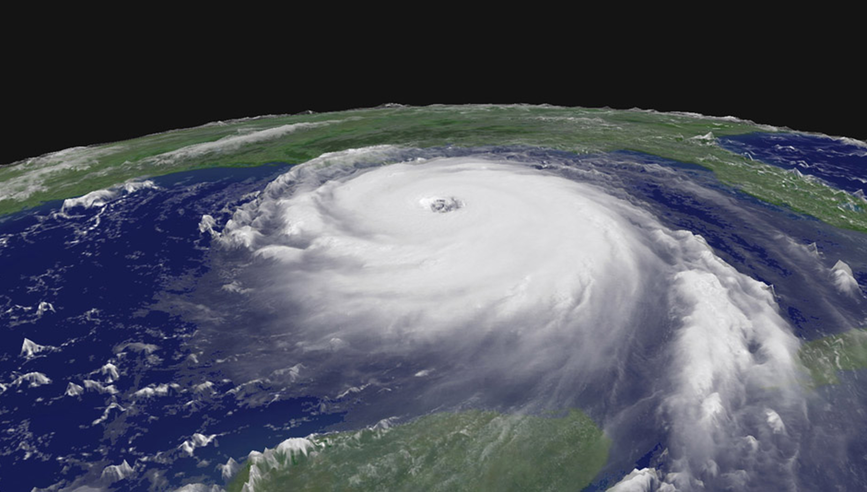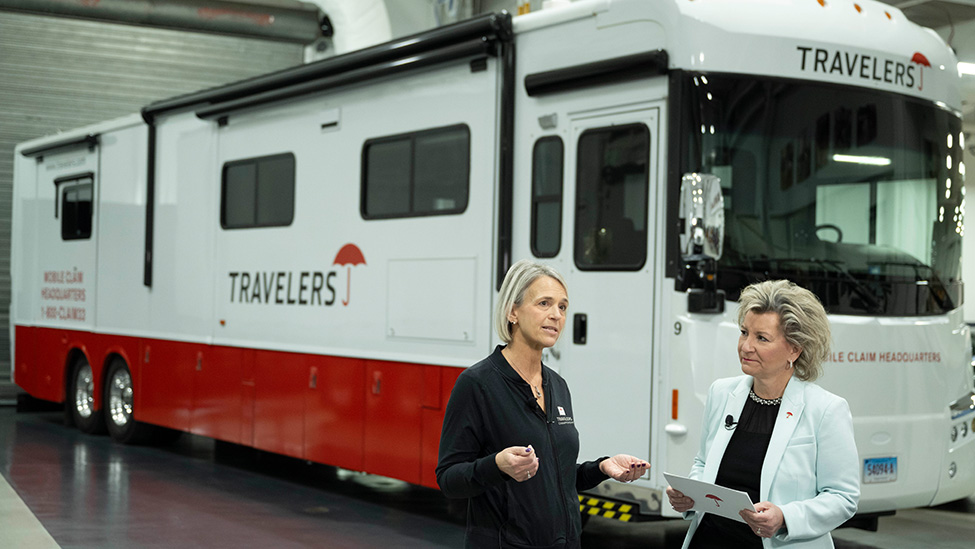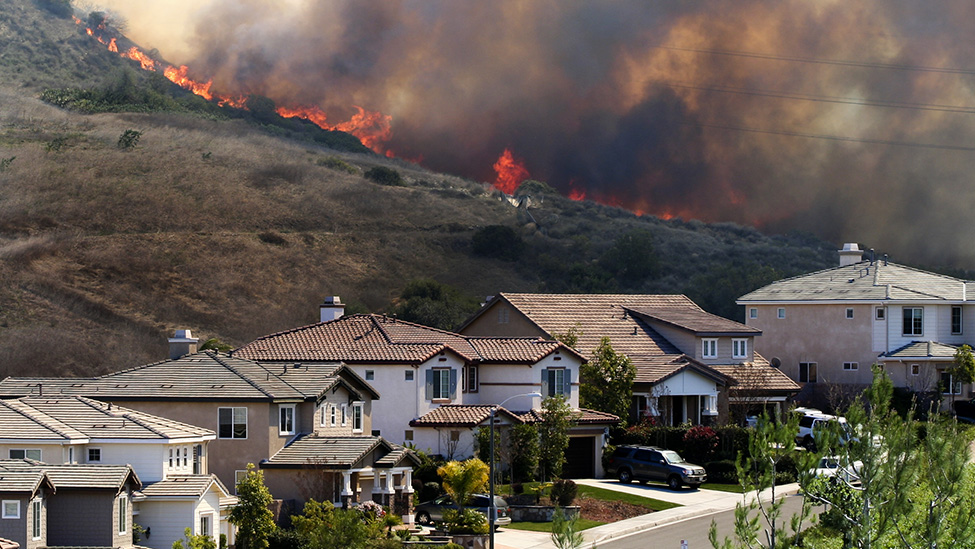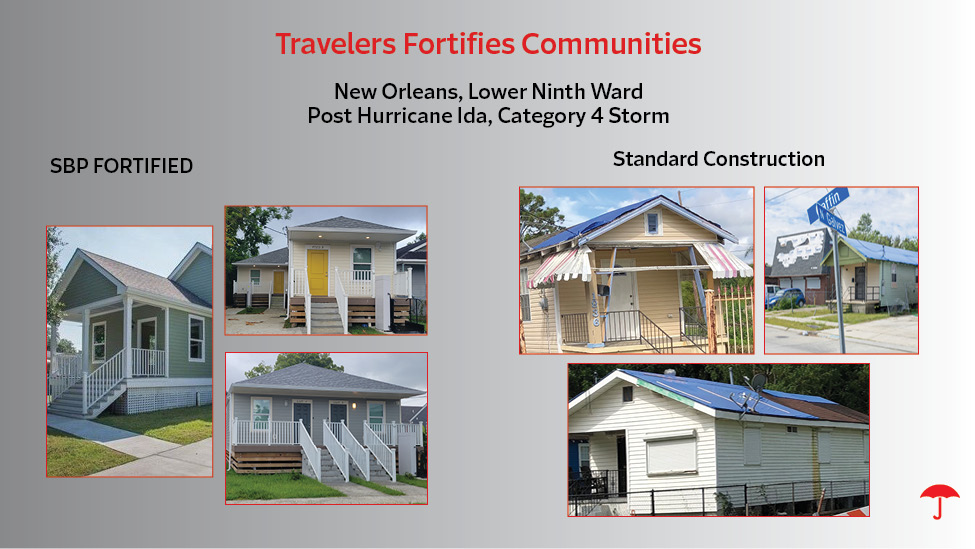IBHS Sponsorship: Supporting Research in Severe Weather Readiness and Response

Travelers has partnered with the Insurance Institute for Business & Home Safety (IBHS) for more than 20 years. We have played a key role in guiding the IBHS research team as a co-founding member of the state-of-the-art IBHS research center located in Chester County, South Carolina. Additionally, in light of our strong commitment to IBHS, we have a permanent seat on its executive committee.
IBHS delivers top-tier science and translates it into action so we can prevent avoidable property losses, strengthen homes and businesses, and help communities recover faster from a natural disaster.
According to a 2019 National Institute of Building Sciences study, for every $1 spent on mitigation, the United States can save $6 in future disaster costs. Over the last decade, IBHS has conducted full-scale laboratory testing at its facility and has influenced changes to existing building code standards and best practices to mitigate potential losses. Through our research partnership with IBHS, we have gained a better understanding of severe wind, hail and fire impacts on building engineering standards and have incorporated these insights into our underwriting and pricing methodologies. For example, in many states, our newest homeowners program offers a discount of up to 18% on hurricane premium for homes built to the IBHS FORTIFIED Gold™ standard. In Alabama, depending on the location, the discount can be up to 55% on hurricane premium for this designation.
The events and programs listed below highlight some of the recent work on which we have collaborated with IBHS:
- In 2024, IBHS introduced a wildfire prepared neighborhood framework, which aims to provide specific metrics and data requirements for communities to achieve and maintain resilience against wildfire. This framework, for example, includes specific requirements about building density within the community and wildfire preparedness of individual buildings. This new framework provides neighborhoods and communities with a pathway to reduce wildfire risk.
- In 2023, IBHS released a report evaluating the performance of Florida’s building code during Hurricane Ian. Key takeaways were that newer construction performed very well and was much less likely than older construction to experience damage, especially in the areas that experienced the highest wind speeds. These results should serve as a lesson to other states that building codes are a very important and cost-effective risk mitigation tool to reduce the impacts of weather and climate-related risks.
- In January 2022, IBHS introduced the FORTIFIED Multifamily™ standard, providing a cost-effective pathway toward resiliency for the more than 160 million Americans who live in multifamily housing. An October 2022 study from the Alabama Center for Insurance Information and Research demonstrated that a significant amount of storm damage can be mitigated through investment in resilient multifamily construction, with a return on investment as high as 72%.
- In August 2021, IBHS released the Wildfire Prepared Home program. Similar to the FORTIFIED program for wind, this program provides homeowners with a pathway to receive a three-year designation recognizing their efforts to reduce wildfire risk. Importantly, the designation process includes an independent inspection and assessment to evaluate the effectiveness of the home’s wildfire mitigation efforts.
Illustrative initiatives
Travelers Institute®
Thought Leadership on Disaster Preparedness
The Travelers Institute has an extensive history of advancing education and dialogue around disaster preparedness.

Wildfire Defense Services
Protecting Our Customers from Increased Wildfire Risk
While our commitment to our customers is to make them whole after a covered loss such as a wildfire, we also help our customers avoid the loss entirely or mitigate the loss should one occur.

Travelers Fortifies Communities
Building Strong, Resilient Communities
We partner with Habitat for Humanity®, SBP, Smart Home America, Team Rubicon and the Insurance Institute for Business & Home Safety to build affordable, wind-resistant homes to FORTIFIED Home™ standards throughout the country.
